Ankhoï, dopo il suo primo show in Italia lo scorso 16 marzo al Volt di Milano e il grande supporto ricevuto da KeineMusik, è nostro ospite su Parkett Channel.
Ankhoï è un nome da tenere d’occhio in questo 2024. Il produttore di origini marocchine, oltre a macinare record di streaming e supporto da artisti del calibro di Adam Port, &Me e Rampa, sta scolpendo con successo una propria chiara e definita identità musicale.
Il Marocco, la sua terra d’origine, è il luogo centrale in cui prende forma il racconto musicale di Ankhoï in cui melodie sognanti e ritmi afro si amalgamano con naturalezza, costruendo un’emotività fanciullesca ed intrisa di nostalgia.
La collaborazione con Mayra Andrade per il remix di “Afeto” è un esempio perfetto dell’approccio del dj marocchino alla composizione. Una gemma della melodic afro house che promette di regalare nuove emozioni e di spingersi presto verso nuovi confini.
Abbiamo avuto modo di farci raccontare da Ankhoï il suo inizio 2024, le sue origini come musicista e il legame indissolubile che continua ad avere con le sue radici. Buona lettura!
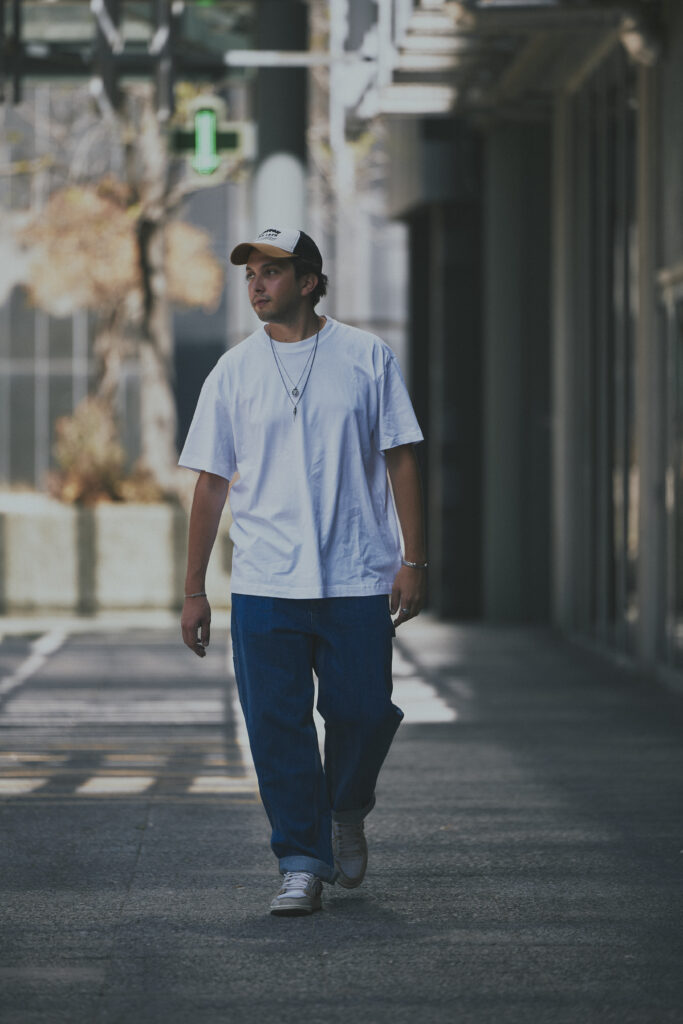
Ciao Ankhoï, benvenuto su Parkett. Vorrei iniziare ringraziandoti per essere qui con noi e sapere come stai vivendo questo periodo.
Grazie per l’invito. Sto bene, mi aspettano tempi entusiasmanti e mi sto divertendo molto ultimamente in studio e sul palco.
La tua storia musicale inizia da giovanissimo, a soli 12 anni quando i tuoi genitori ti regalarono una chitarra e un Djembe. Qual è stato il momento in cui sei passato da un approccio strumentale a un approccio compositivo elettronico?
La composizione è arrivata un po’ più tardi. La prima volta che ho suonato con un synth mi ha fatto venire i brividi e volevo imparare ad usarlo e capire tutti quei parametri e pulsanti. Ho iniziato prima con il DJ: un mio amico aveva ai tempi uno dei primi CDJ e io andavo a rilassarmi con lui e provavo i miei nuovi CD. È stato così divertente che il mio interesse ha iniziato a crescere e da lì mi sono tuffato per capire la storia del movimento, i suoi inizi, i diversi generi… Dopo i miei primi due anni in Francia, dove non facevo molto a parte preparare gli esami di ammissione alle scuole di ingegneria, ho iniziato ad avere abbastanza tempo per fare di nuovo musica ed è lì che ho iniziato lentamente ad imparare la produzione e a fare piccoli show a Parigi nel mio tempo libero.
Il Marocco è la terra dove sei nato e che riesci sempre a rievocare nelle tue intense melodie. Quanto ha influenzato la tradizione musicale della tua terra nel tuo modo di concepire la musica e come la descrivi in chiave contemporanea?
Penso che le tue produzioni siano in un modo o nell’altro influenzate dai suoni con cui cresci e dalla musica che senti in giro. Nella mia batteria, ad esempio, a volte puoi sentire queste rumorose percussioni distorte, probabilmente perché amo il “Bendir ” come suono. In un aspetto più globale, nella cultura marocchina, amiamo ballare e cantare insieme in ogni riunione di famiglia e di amici. Cerco sempre di creare questo tipo di momenti nella mia musica, e credo che ci sia sempre qualcosa con cui divertirsi e cantare con i tuoi amici, che si tratti di un buon ritornello, di una bella melodia o di altro.
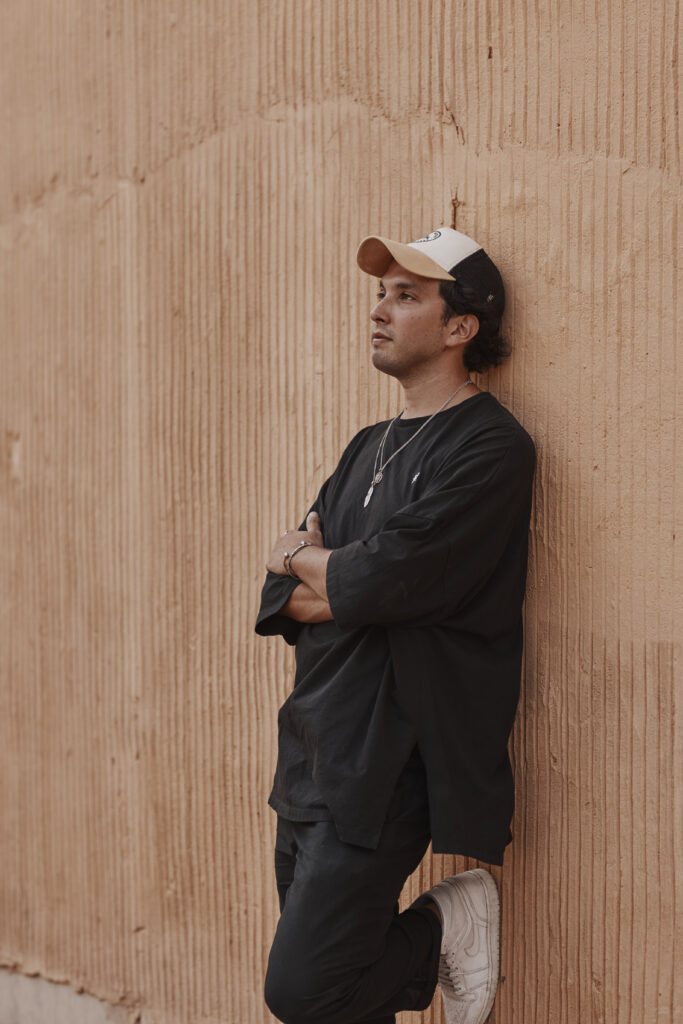
Tratti melodici, sonorità afro ed elementi progressive house si fondono nel tuo sound. Una delle etichette che sicuramente ha fatto un punto importante è stata MoBlack. Cosa ha rappresentato per te l’uscita su MoBlack e quanto è attuale l’obiettivo dell’etichetta di portare avanti e introdurre nuovi talenti della scena elettronica africana nella tua ricerca musicale?
Moblack è una delle migliori etichette di Afro-House. Suonavo molte delle loro produzioni nei miei set, ed è stato gratificante pubblicarne una. Mimmo si fida di molti giovani produttori ed è sempre alla ricerca di nuovi suoni, il che è positivo per la scena. Per quanto riguarda la mia ricerca musicale, la maggior parte delle volte la faccio in generi totalmente diversi. Credo che ci sia un immenso potenziale creativo ed esplorazione da trovare negli spazi tra i generi.
Lo scorso 16 febbraio è uscito su Sony France il tuo remix di “Afeto” di Mayra Andrade, che è stata subito supportata da artisti del calibro di Diplo, Pete Tong e Keinemusik. Il remix ha un tocco malinconico, e mi piacerebbe sapere qual è stata l’ispirazione per questo remix e quando è nato.
Ho scoperto la musica di Mayra ai tempi in cui stavo facendo un semestre di scambio a Rio. A quel tempo non parlavo una sola parola in portoghese, ma sentivo di aver capito i testi. All’inizio dei 23 anni, stavo ascoltando le mie vecchie playlist; Mi sono imbattuto in una delle mie canzoni preferite da lei “Ilha do Santigo” e da lì ho scoperto “Afeto”. Me ne sono subito innamorato e volevo farne una versione da poter suonare nei miei set. L’ho condiviso con Keinemusik. Da quel momento in poi, il brano ha guadagnato molto supporto e ho iniziato a ricevere molte richieste. Sono felice che siamo riusciti a farcela dopo questa lunga attesa e siamo grati per l’ottimo feedback che abbiamo avuto.
Keinemusik ha supportato fortemente la tua musica. Che rapporto di scambio hai con questi artisti, in che modo rappresentano per te fonte di ispirazione e cosa pensi dello straordinario successo che hanno ottenuto negli ultimi anni?
Keinemusik ha dato così tanta luce al mio lavoro attraverso il loro supporto, e sarò sempre grato per questo. La loro intera carriera è fonte di ispirazione per il modo in cui hanno creduto alle loro visioni e sono riusciti a superare le barriere nel corso degli anni facendo qualcosa di diverso ogni volta. E se c’è qualcosa che mi piacerebbe fare come loro, è la qualità costante e l’apertura verso gli altri artisti che vorrei emulare quando avrò la piattaforma giusta per farlo. Per quanto riguarda il loro successo, è il risultato di lunghi anni di duro lavoro e dedizione.
C’è una frase che mi piace: “Ti ci vorranno 10 anni per emergere da un giorno all’altro” e penso che riassuma come a volte potrebbe essere visto il successo. C’è sempre una buona ragione per il successo e la longevità è connessa, la maggior parte delle volte, al duro lavoro e alle scelte intelligenti. Quando si tratta della nostra relazione, il mio modo di tenere vivo il nostro legame è mandargli della musica e il loro modo sta nel ricambiarla e sostenerla.
Con la tua musica hai raggiunto oltre 3 milioni di stream, numeri davvero importanti. Senti qualche pressione derivante dalle aspettative sulla tua musica mentre il radar è puntato su di te?
Non proprio, non ho alcuna aspettativa sui numeri quando decido di fare una release. Quando raggiungono un certo livello sono contento ovviamente e significa che quello che hai comunicato è arrrivato a molte persone. Ma a volte vuoi pubblicare qualcosa semplicemente perché esprime qualcosa che ha un significato per te. Come DJ, abbiamo la possibilità di testare le nostre uscite, così puoi riconoscere quali hanno una migliore comprensione da parte del pubblico. Tuttavia, ad esempio, ho una traccia che non ho mai provato perché non si adatta ai miei set, ma voglio comunque pubblicarla perché ci credo.
Da un punto di vista più tecnico, qual è il set up perfetto per te in questo momento e quali sono le fasi principali della tua produzione?
Principalmente un computer, dei bei monitor o delle buone cuffie e una tastiera midi. A volte lavoro intenzionalmente senza la tastiera per concentrarmi più sul suono stesso che sulla complessità delle note per ottenere la sensazione che sto cercando. In termini di flusso di lavoro, non ne ho uno specifico. Quello che faccio di più è probabilmente iniziare con la batteria e aggiungere da lì emozioni, tensione o oscurità a seconda di ciò che mi ispira.
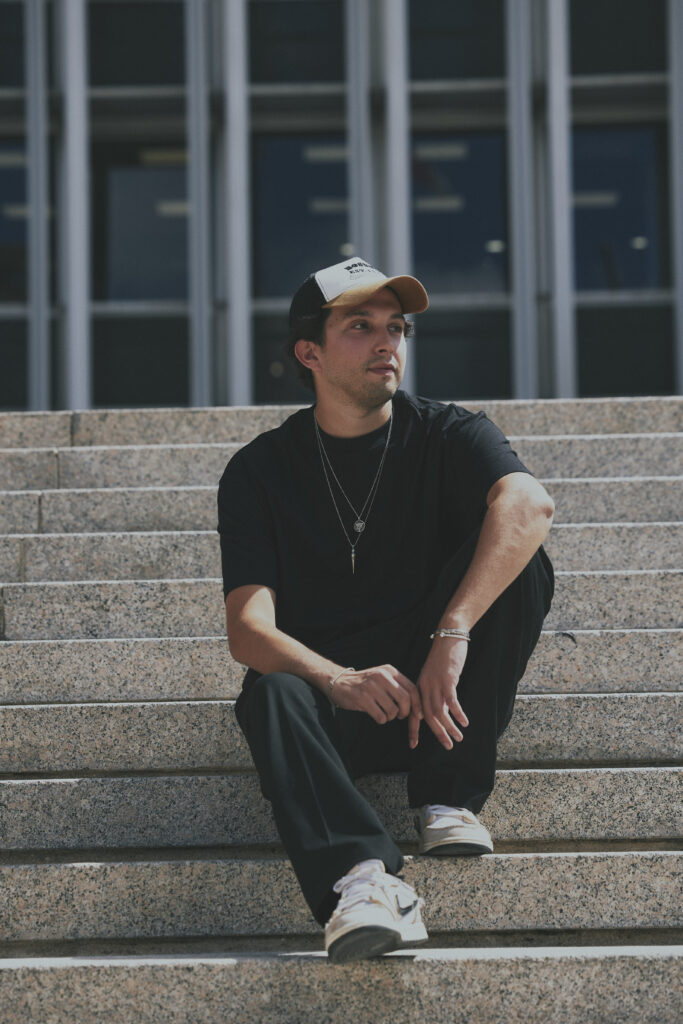
Ma cerco di cambiare ogni volta il mio flusso di lavoro per continuare ad avere nuove idee ed esplorare nuove cose. Ultimamente le mie produzioni iniziano con l’esplorazione della tastiera, di nuovi plugin o di un campione interessante e, una volta che suona abbastanza bene per me, provo a costruire e adattare tutto per mantenerlo interessante.
Lo scorso 16 marzo sei stato ospite a Volt Milano insieme ad Adam Port ed è stato il tuo primo appuntamento in Italia. Come ti sei sentito a condividere la consolle con Adam in un club così importante a livello mondiale?
Sì, è stato il mio primo spettacolo in Italia. È stata davvero un’occasione condividere il palco con artisti che ti ispirano e sono entusiasta per ciò che è successo con Adam. So anche quanto significhi per lui spingere altri artisti e penso che anche lui deve essere felice di vedere che il loro sostegno è stato un punto di partenza per condividere con lui il palco in uno dei migliori club d’Europa.
Ultima domanda. Quali sono gli obiettivi per questo 2024 e quale messaggio vuoi lasciare ai tuoi fan italiani?
Rilasciare buona musica, divertirmi in studio e sul palco, cercare di raggiungere nuove vette ed esplorare più generi. Ai miei amici italiani vorrei dire che non vedo l’ora di ballare con voi, e spero che sia l’inizio di una lunga storia (dm datemi i vostri migliori consigli sulla pasta a Milano, per favore ☺)
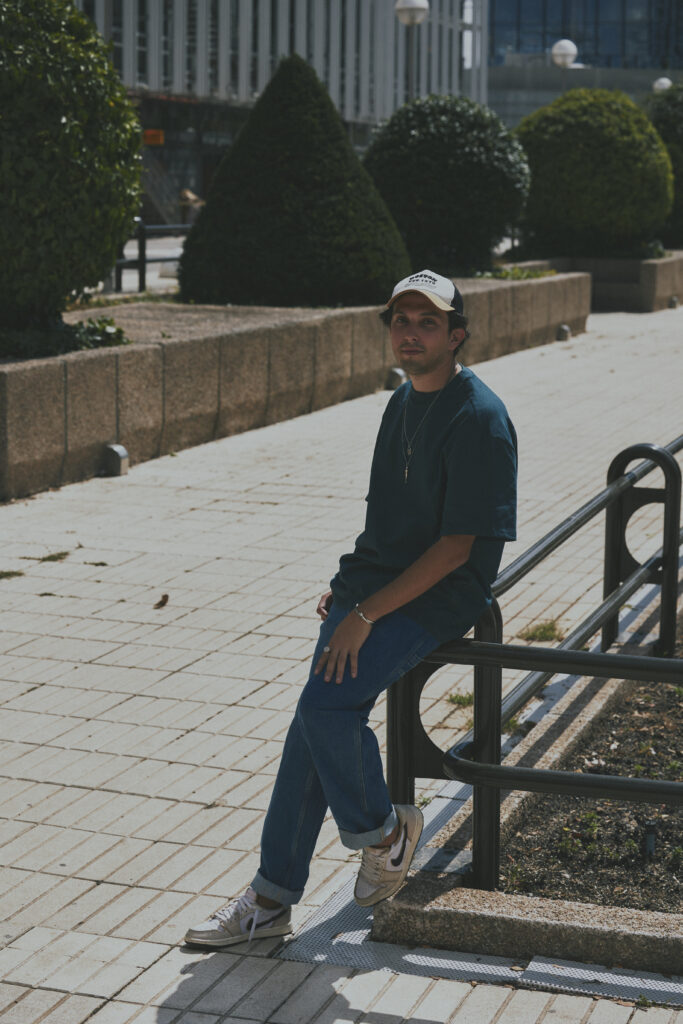
ENGLISH VERSION
Hi Ankhoï, welcome to Parkett. I would like to start by thanking you for being here with us and knowing how you are experiencing this period.
Thank you for the invitation.I’m doing good, exciting times ahead and a lot of fun lately in the studio and on stage.
Your musical story begins very young, at just 12 years old when your parents gave you Guitar and a Djembe. What was the moment you switched from an instrumental approach to an electronic compositional approach?
Composition came a bit later. My first time playing with a synth gave me chills and I wanted to learn how to use it and understand all those parameters and buttons.I started with the DJing first: a friend of mine had back in the days one of the first CDJs and I used to go chill with him and try my new CDs.It was so fun than my interest starts growing and from there, I dived into it to understand the history of the movement, its beginnings, the different genres….After my first two years in France, where I was not doing much apart from preparing my entry exams for engineering schools, I started having enough time to do music again and that’s where I started slowly learning production and doing small shows In Paris in my leisure time.
Morocco is the land where you were born that you always manage to recall in your intense melodies. How much has the musical tradition of your land influenced your way of conceiving music and how you describe it in a contemporary way?
I think that your productions are in a way, or another influenced by the sounds you grow up listening to and the music you hear around.In my drums, for example, you can hear sometimes this noisy distorted percussion, probably because I love “Bendir“ sound. In a more global aspect, in the Moroccan culture, we love dancing and singing together in every family and friends’ reunion.I always try to create these types of moments in my music, and I believe there is always something to enjoy along and sing with your friends, whether a good hook, a nice melody or other details…
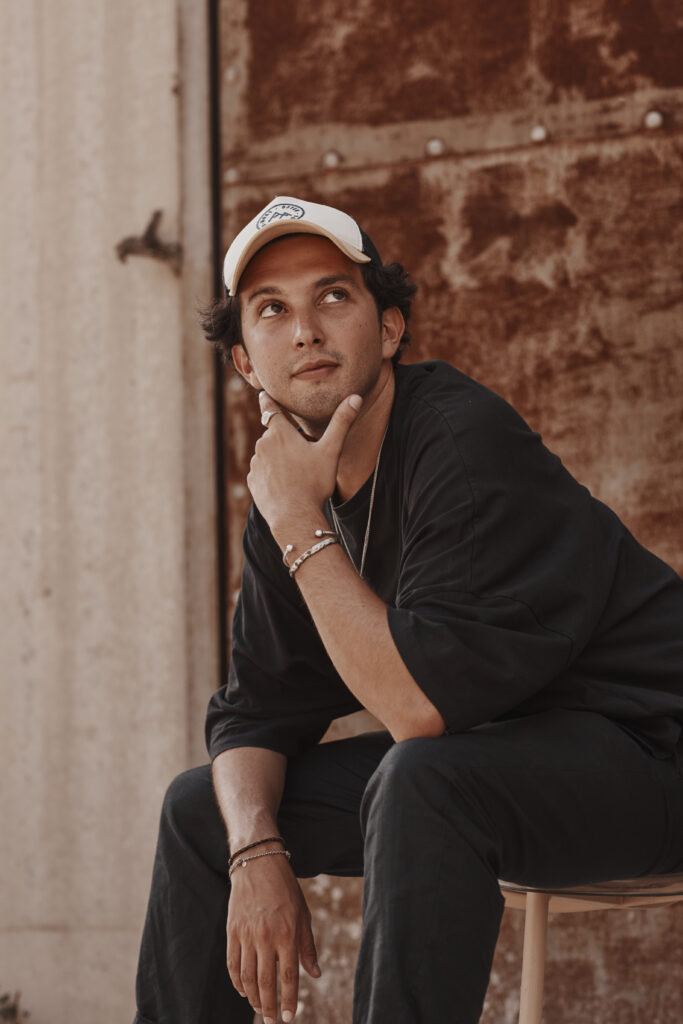
Melodic traits, Afro sounds and progressive house elements come together in your sound. One of the labels that certainly made an important point was MoBlack. What did the release on MoBlack represent for you and how present is the label’s aim of bringing forward and introducing new talents from the African electronic scene to your musical research?
Moblack is one of the best labels in Afro-House. I used to play a lot of their songs in my sets, and it was rewarding to have a release in it.Mimmo is trusting a lot of young producers and always looking for new sounds which is good thing for the scene. As per my musical research, most of the time, I do it in totally different genres. I believe there’s immense creative potential and exploration to be found within the spaces between genres.
Last February 16th your remix of “Afeto” by Mayra Andrade was released on Sony France, which was immediately supported by artists of the caliber of Diplo, Pete Tong and Keinemusik. The remix has a melancholic touch, and I would like to know what was the inspiration for this remix and when it was born.
I discovered Mayra’s music back in the days when I was doing an exchange semester in Rio. At that time, I wasn’t speaking a single word in Portuguese, but I felt like I understood the lyrics.In early 23, I was listening to my old playlists; I ran into one of my favorite songs from her “Ilha do Santigo” and discovered from there “Afeto”. I immediately felt in love with it and wanted to do a version that I can play in my sets. I shared it with Keinemusik. From this point, the track gained a lot of support, and I began receiving a lot ofrequests for it.I’m glad we managed doing it after this long wait and we are thankful for all the great feedback we had.
Keinemusik supported your music strongly. What exchange relationship do you have with these artists, in what way do they represent an inspiration for you and what do you think of the extraordinary success they have achieved in recent years?
Keinemusik put so much light into my work through their support, and I will be always grateful for that. Their whole career is an inspiration in the way they trusted their visions and managed to push barriers through the years with doing something different every time.And if there’s something that I would like to do like them, is the constant quality and opening doors for others when I’ll have the right platform to do it.Regarding their success, it’s the result of their long years of hard work and dedication.
There is a sentence that I like:” it will take you 10 years to pop out from a day to another” and I think that it sums up how success might be seen sometimes. There is always a good reason for success and longevity, and most of the time it’s thanks to hard work and smart choices.When it comes to our relationship, my way of giving them a hug is sending them music and their way of giving it back is supporting it
With your music you have reached over 3 million streams, truly important numbers. Do you experience any pressure from expectations on your music with the radar on it?
Not really, I’m not having any expectation on numbers when I decide to do a release. When they reach a certain level, I’m happy of course, and it means that what you said clicked with a lot of persons. But sometimes you just want to release something because it says something that has a meaning to you.As DJs, we have the chance to test our releases, so you can recognize which ones are having a better understanding from the crowd. Though, I have a track for example that I never tried because it doesn’t fit in my sets, but I still want to release it because I believe in it.
From a more technical point of view, what is the perfect set up for you at the moment and what are the main phases of your production?
Mainly a computer, nice monitors or good headphones and a midi keyboard. Sometimes I intentionally work without the keyboard to focus more on the sound itself than complexifying the notes to bring the feeling I’m looking for.In terms of workflows, I don’t really have a specific one. The one that I do the most is probably starting with the drums and adding from there emotions, tension or darkness depending on what inspires me.But I’m trying to change my workflow every time to keep having new ideas and explore new things. My productions lately begin with me exploring with the keyboard or new plugins or a cool sample and once it sounds good enough for me, I try to build around and adjust everything to keep it interesting.
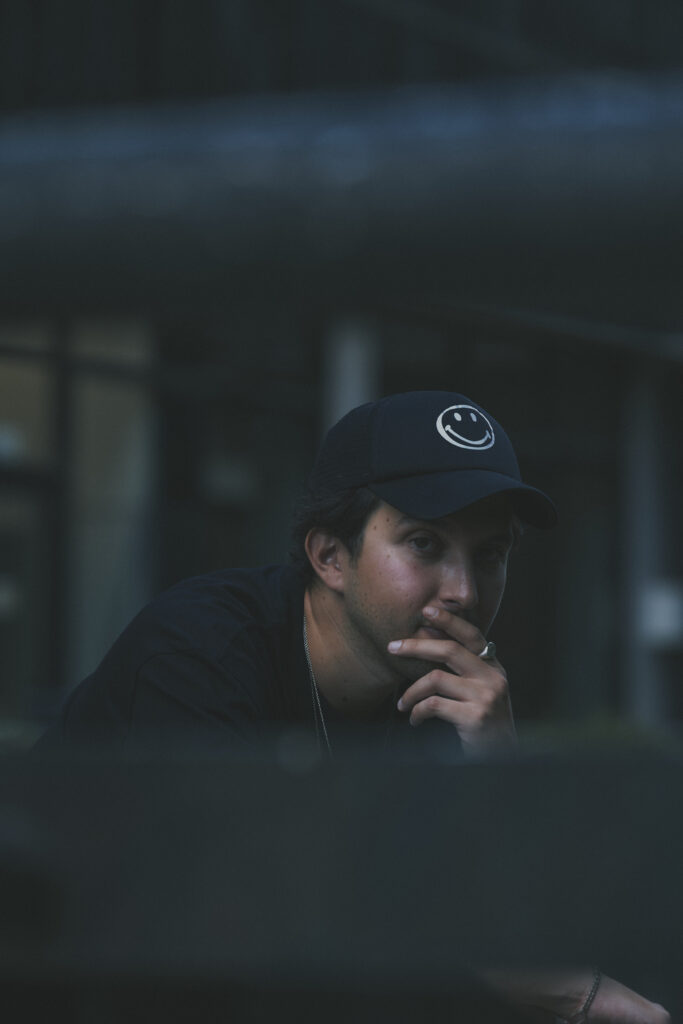
Last March 16th you Have been a guest at Volt Milano together with Adam Port. and it was your first date in Italy and how did you feel about sharing the console with Adam in such an important club on a global level?
Yes, it was my first show in Italy.It was such a chance to share the stage with the artists that inspires you and I was excited for this one with Adam.I also know how much it means to him to push other artists and I think that he must happy too to see that their support was a starting point to me sharing the stage with him in one of the best clubs in Europe.
Last question. What are the objectives for this 2024 and what message do you want to leave to your Italian fans?
Releasing good music, having fun in the studio and on stage, trying to reach new heights and exploring more genres.To my Italian friends, I can’t wait to dance with you, and I hope it’s the beginning of a long story (dm me your best pasta recommendations in Milan please ☺)
